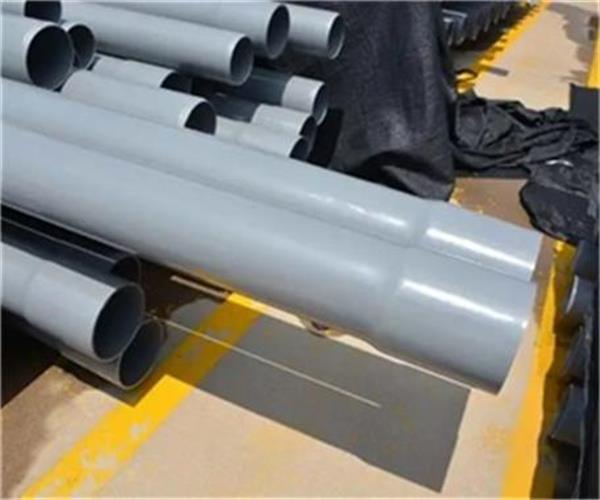Nov . 22, 2024 03:00 Back to list
ppr pipe used for factories
PPR Pipes Used for Factories Unveiling the Benefits and Applications
In industrial settings, the choice of materials used for piping systems is crucial, as it directly impacts operational efficiency, safety, and cost-effectiveness. Polypropylene Random Copolymer (PPR) pipes have emerged as a preferred choice for many factories and industrial applications, thanks to their numerous advantages. This article explores the properties of PPR pipes, their applications in factories, and the reasons why they are favored over traditional materials.
Understanding PPR Pipes
PPR pipes are made from polypropylene, a thermoplastic polymer, which is known for its excellent resistance to temperature, pressure, and various chemicals. The “random copolymer” designation refers to the molecular structure that allows these pipes to maintain flexibility and strength. This construction provides PPR pipes with significant thermal and mechanical properties, making them highly reliable for industrial applications.
Advantages of PPR Pipes
1. Corrosion Resistance One of the most significant advantages of PPR pipes is their exceptional resistance to corrosion. Unlike metal pipes that can rust or degrade over time, PPR pipes do not react with most chemicals, providing longevity and reducing maintenance costs.
2. Thermal Insulation PPR pipes are excellent insulators, which helps to maintain the temperature of the fluids transported within them. This property is particularly beneficial in factories where hot water or steam lines are present, as it minimizes heat loss and energy consumption.
3. Lightweight and Easy to Install Compared to metal pipes, PPR pipes are lightweight, which not only makes transportation easier but also simplifies the installation process. This reduction in weight can lead to lower labor costs and quicker project completion times.
4. Resistance to High Temperatures and Pressures PPR pipes can withstand temperatures up to 95°C (203°F) and pressures of up to 20 bar. This makes them suitable for various applications, including hot water distribution systems and industrial cooling systems.
5. Hygienic and Safe PPR pipes are non-toxic and do not leach harmful substances, making them a safe choice for transporting potable water. This aspect is critical for factories involved in food and beverage production or any application where safety is paramount.
ppr pipe used for factories

6. Cost-Effectiveness Although the initial investment in PPR piping may be similar to other materials, the long-term benefits such as reduced maintenance, durability, and energy efficiency make them a cost-effective solution for factories.
Applications in Factories
PPR pipes are used in a wide array of applications within factories, driven by their unique properties
- Water Supply Systems PPR pipes are widely used for potable water distribution due to their safety and hygiene standards. They ensure a reliable and clean water supply for various processes.
- Compressed Air Lines The strength and pressure tolerance of PPR pipes make them suitable for compressed air systems, which are commonly used in factories for powering machinery and tools.
- Heating Systems Due to their thermal insulation properties, PPR pipes are excellent for hot water distribution and heating systems, reducing energy losses and improving efficiency.
- Chemical Processing In factories that use or produce chemicals, PPR pipes provide an excellent solution due to their resistance to chemical corrosion, ensuring long-lasting and safe operations.
- Drainage Systems Their ability to resist corrosion also makes PPR pipes suitable for drainage systems, where they can transport waste materials safely and effectively.
Conclusion
With the growing demand for efficient, safe, and cost-effective piping solutions in factories, PPR pipes stand out as a leading choice. Their unique combination of properties, including corrosion resistance, thermal insulation, and ease of installation, makes them ideal for a variety of industrial applications. As factories continue to modernize their infrastructure, the use of PPR pipes is likely to expand, ultimately benefiting the industry by enhancing productivity and reducing operational costs. Embracing this innovative material is not just a smart decision; it is essential for the future of sustainable and efficient industrial operations.
-
High-Quality PVC Borehole Pipes Durable & Versatile Pipe Solutions
NewsJul.08,2025
-
High-Quality PVC Perforated Pipes for Efficient Drainage Leading Manufacturers & Factories
NewsJul.08,2025
-
High-Quality PVC Borehole Pipes Durable Pipe Solutions by Leading Manufacturer
NewsJul.08,2025
-
High-Quality PVC Borehole Pipes Reliable PVC Pipe Manufacturer Solutions
NewsJul.07,2025
-
High-Quality UPVC Drain Pipes Durable HDPE & Drain Pipe Solutions
NewsJul.07,2025
-
High-Quality Conduit Pipes & HDPE Conduit Fittings Manufacturer Reliable Factory Supply
NewsJul.06,2025

